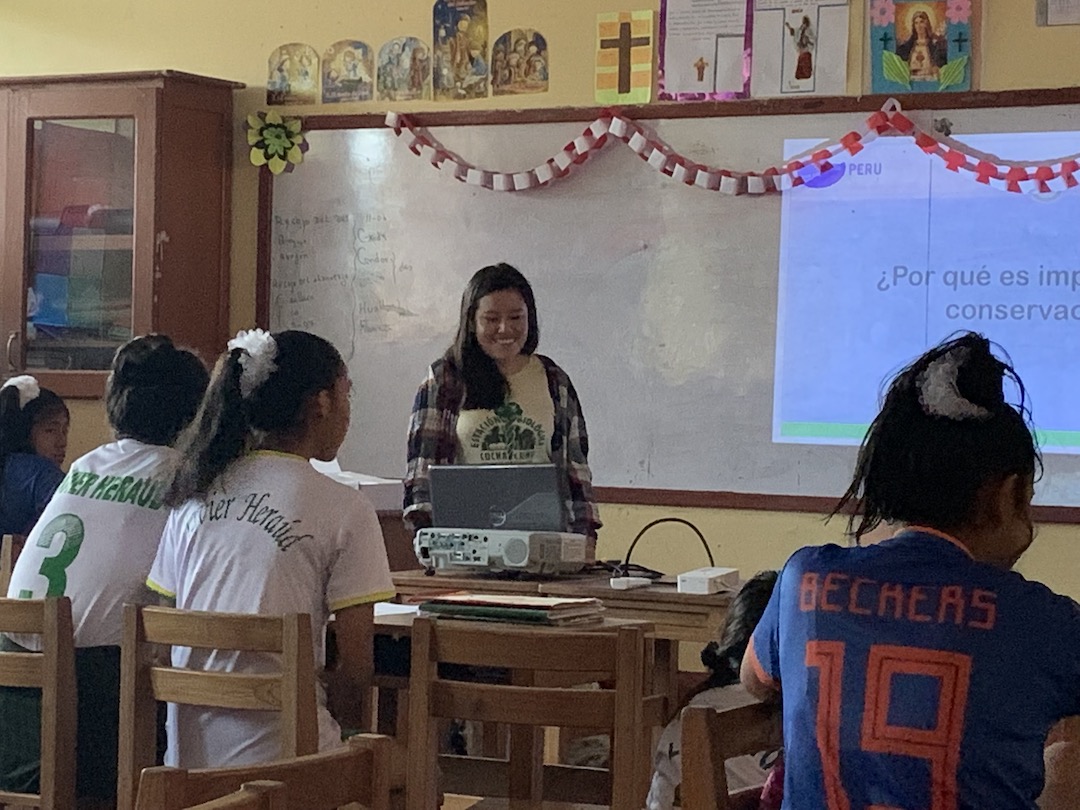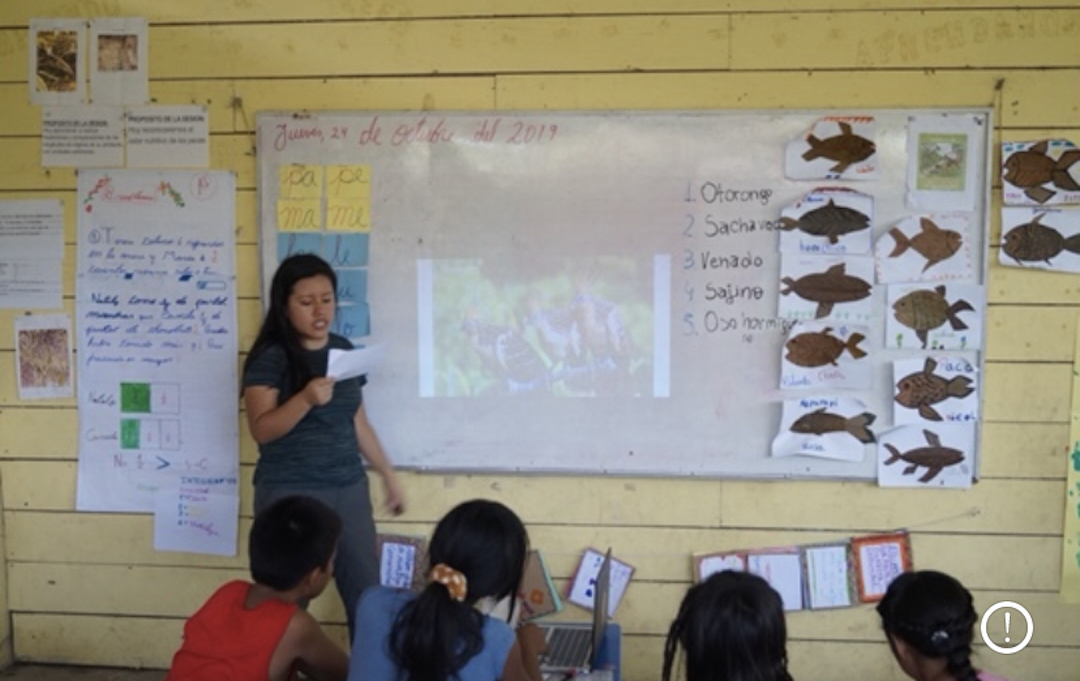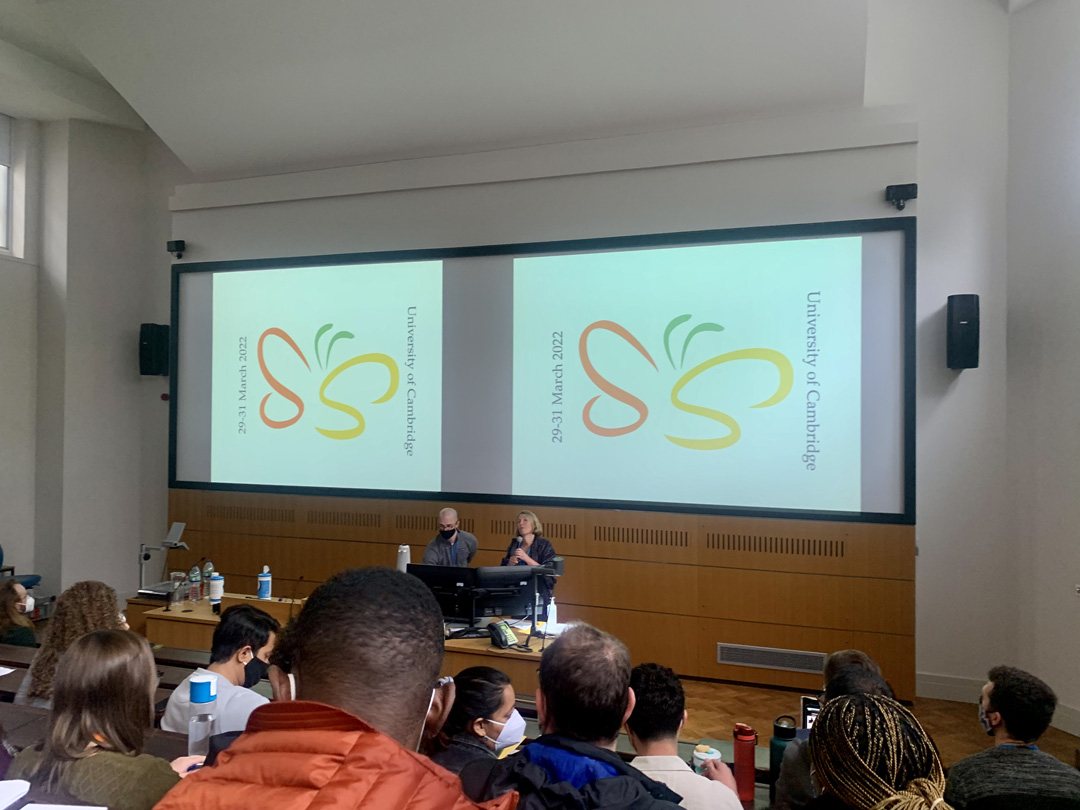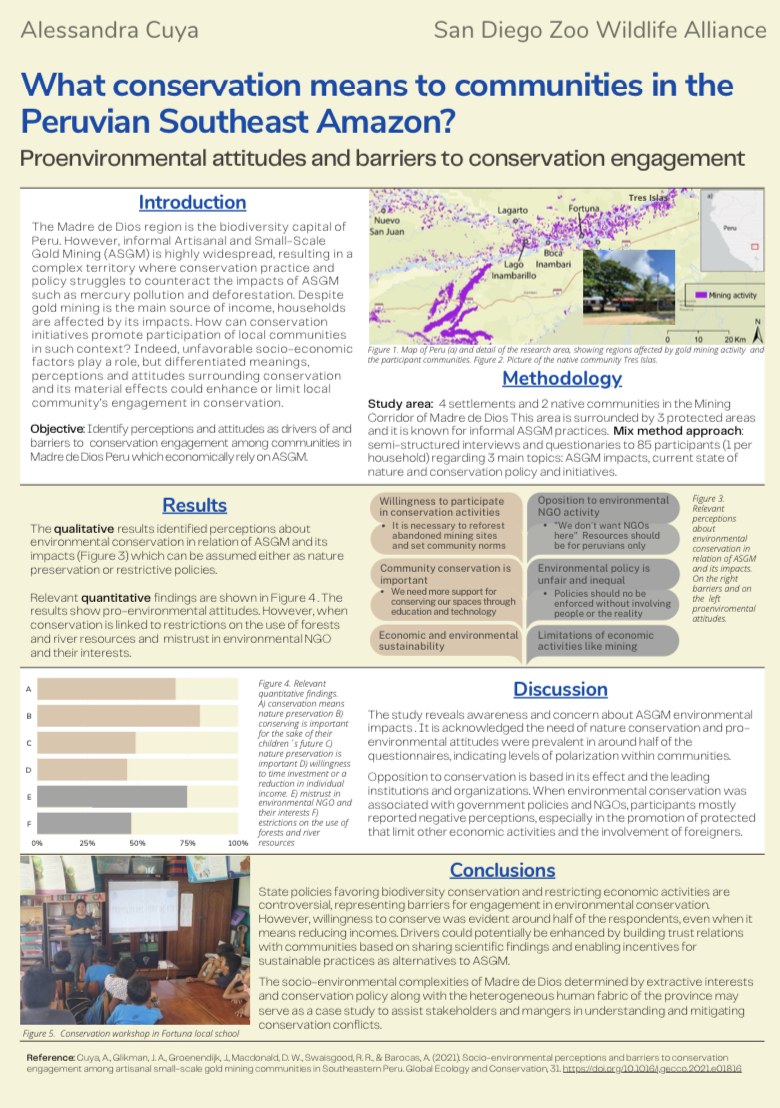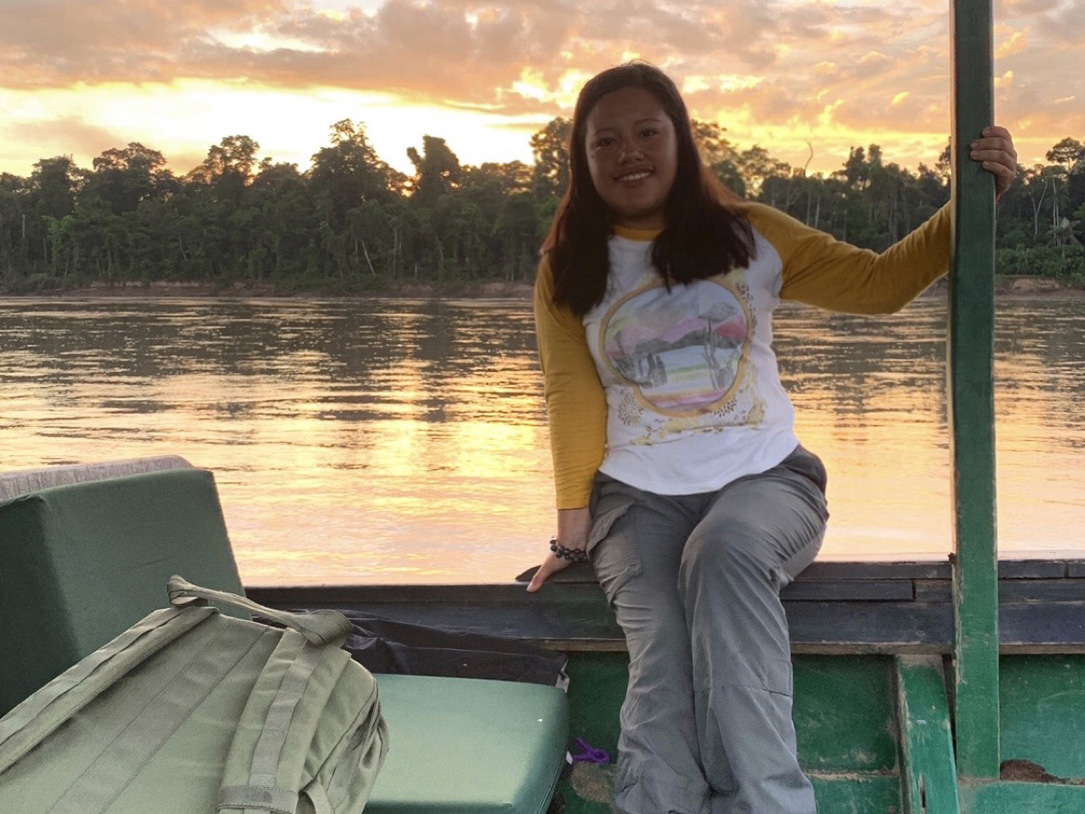
The Student Conference in Conservation Science, 2022
By Alessandra Cuya
For 3 years, I have been involved in the Giant Otter Conservation Program in the Madre de Dios River Basin. The region is often referred to as the Biodiversity Capital of Peru; however, it is an informal and illegal gold mining hotspot. In 2019 we aimed to comprehend the complex relationships between conservation practice and policy and the mining communities. As one of the outcomes, we developed the article Socio-environmental perceptions and barriers to conservation engagement among artisanal small-scale gold mining communities in Southeastern Peru which was published last year. A few months after, the call for applications for the 2022 Student Conference in Conservation Science (SCCS) in Cambridge was released. I applied and got selected to present a poster that summarizes the main findings of the paper.
The poster based on the above paper is centered in what people think about conservation and in what conditions would they engage in such initiatives. Our main finding shows that conservation locally can have different meanings apart from nature protection. Despite the recognition that conservation practices are needed to face mining impacts within the community, support for conservation diminishes when it is related to fencing, entrance prohibition, and profit-seeking nature activities only accessed by foreigners. These perceptions suggest that communities near protected areas were and are excluded from the governance process regarding conservation in the region.
During March 28-29, just before the Living Lab, I participated in engaging events that aimed to connect and build the capacity of students across the world by offering talks, workshops, and poster sessions. This year the conference was hybrid with more than 300 international delegates online and at Cambridge University. The poster presentations were events online that included presence in-person discussions with delegates at the venue. This was also my first time as a poster presenter at a conference. The experience was challenging but satisfactory as the attendants to my session were engaged with the topic and shared pieces of advice from their own research experiences. I could reflect afterwards that conservation in the Global South faces numerous challenges to balance nature protection, economic activities, and cultural practices. In my research case, gold mining poses a threat to the socio-ecological system but is the main economic support of the communities in the Madre de Dios basin and the entire region.
The SSCC was a great network and learning experience on different efforts in conservation and the research methodologies implemented by master’s and Ph.D. students to approach conservation problematics around the world. It was noteworthy the interdisciplinarity of the events and cases presented, where social and cultural aspects are often considered key as the ecologic variables to assess the conservation conditions of vulnerable species. Moreover, during the conference, we could participate in different workshops led by experienced professors of the Zoology Faculty of Cambridge to improve our research skills.
Despite reflections about how conservation practices could impact communities were less present, I could highlight a very interesting PhD research regarding the political ecology of conservation by Trishant Simlai. He focusses on the social and cultural impacts in the Corbett Tiger Reserve of surveillance technologies in conservation like camara traps or drones. The decision of methodology to monitor species look harmless however it can disrupt people’s lives, especially when they are active users of the forest. Certainly, enabling further platforms for such research are needed towards accomplishing fair environmental conservation practices. Gladly, the sense of responsibility while researching and the motivation to contribute to conservation policy and action beyond academia was evident in assistants and posters, and lecture presenters.
